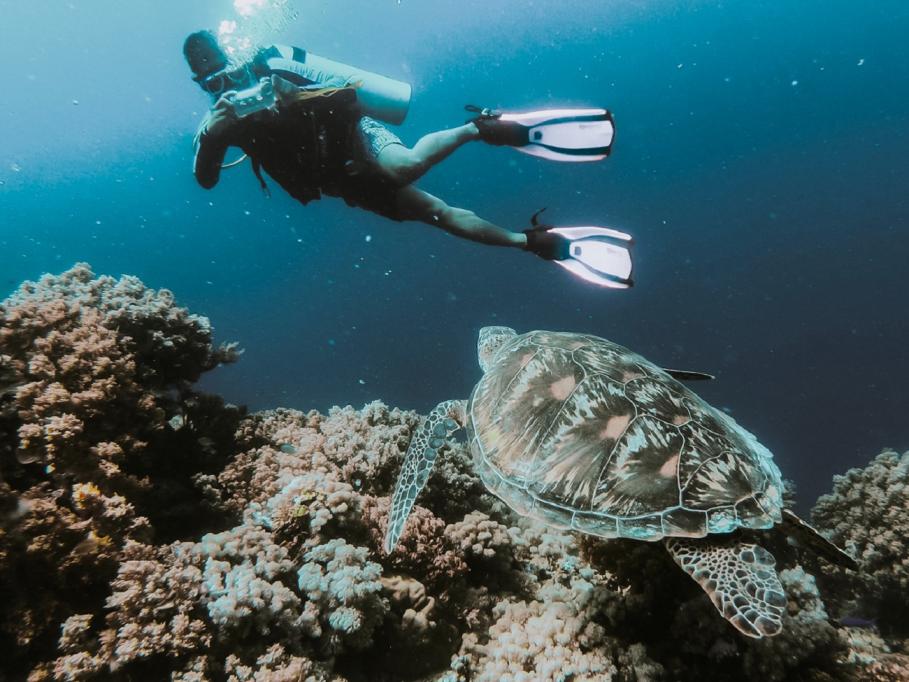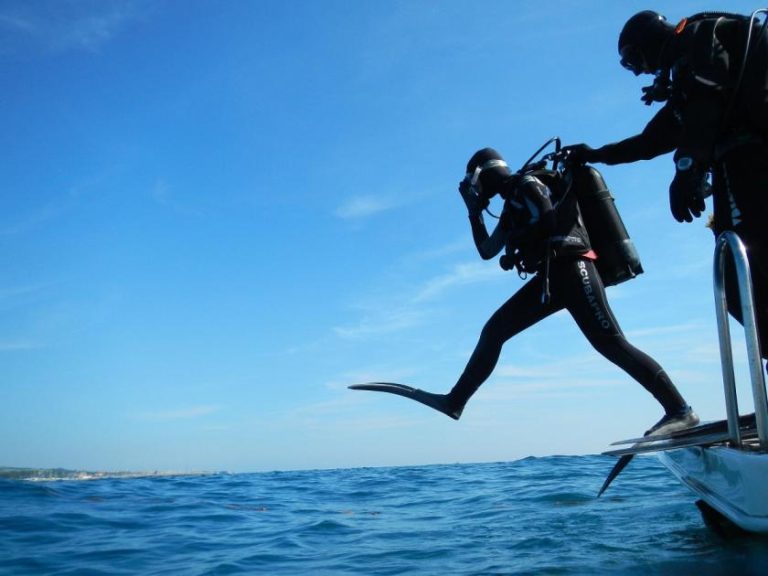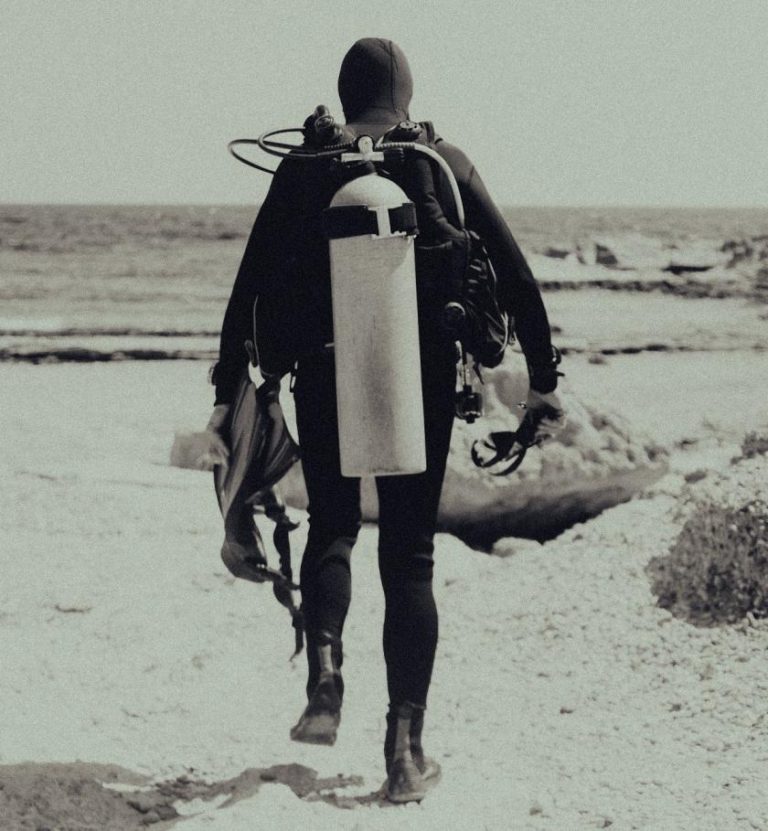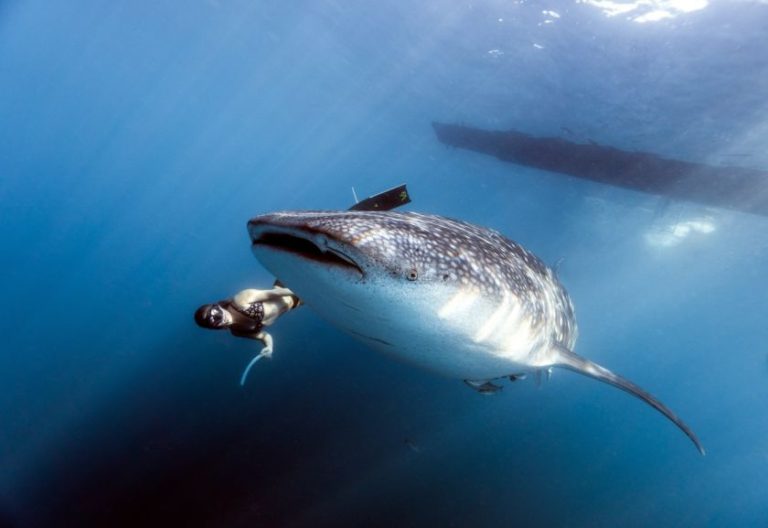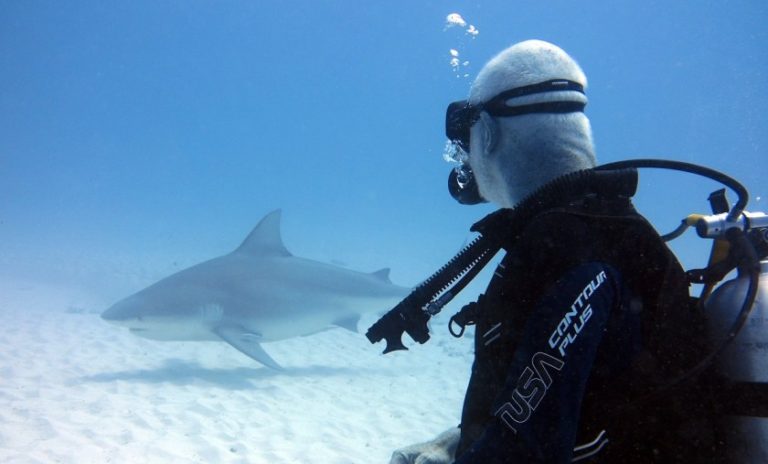Can You Scuba Dive without a Wetsuit?
You’ve probably seen many free divers go diving without wetsuits and maybe one or two scuba divers. As a beginner you may wonder can you scuba dive without a wet suit?
Yes, you can scuba dive without a wetsuit but it’s not recommended. A wetsuit helps keep the diver warm, protects them from UV rays, and protects the diver from bruises. Water is well known to draw heat away from the body 25x faster than any other medium.
Scuba diving involves diving 30 feet and above. Technical and professional divers dive over 100 feet below sea level. At these depths, the water can get extremely cold and can easily cause hypothermia.
Just as it is with increasing altitude, the higher you go the cooler it becomes, the same principle applies in diving. The deeper you go into the water the colder it becomes.
At depths over 100 ft. expect the water to start feeling frizzing cold. Anyone not used to such low temperatures will quickly go into hypothermia or freeze. Dives going to such extreme depths often war dry suits to help them stay warm.
In this article, we’ll dive deeper into why wetsuits are important in scuba diving, how far you can scuba dive without a wetsuit and what happens if you scuba dive for long periods without a wetsuit.
Let’s get into it!
READ MORE: Can You Wear a Swim Cap to Scuba Dive
Can You Scuba Dive Naked In Mexico
Why Do Scuba Divers Wear Wetsuits
Scuba divers wear wetsuits to stay warm while diving, for UV protection, to protect their bodies from bruising, for buoyancy, and for protection from marine life.
Wetsuits come in different thicknesses ranging from 2 mm and above. The thicker the wetsuit the warmer it keeps the diver.
A 3mm wetsuit does a perfect job in keeping divers warm and preventing freezing. The thick neoprene will absorb heat from the sun and trap it within insulating the diver while diving. This means that heat from the diver’s body is also trapped within the neoprene.
Scuba divers spend anywhere from 30 -120 minutes underwater depending on the dive depth. This can seem like a lot of time to spend underwater but it flies so quickly.
Diving over 100 ft. scuba divers are expected to spend less time for two reasons. First spending a lot of time in such depths increases the amount of nitrogen absorbed in the body. Secondly, the water is very cold without the proper gear dives can easily go to hypothermia.
Wetsuits protect divers from harmful UV rays. The material used absorbs most of the light protecting the skin underneath. In addition, black wetsuits don’t reflect any UV light to uncovered body parts such as the face, arms, or legs.
Being underwater exposes divers to many objects such as sharp rocks, shells, and wrecks among others. All these are potential risks to a diver since it’s easy to get cuts and bruises if the body isn’t well protected. The thick material used to make wetsuits provides the perfect shield.
Marine lives have different defense mechanisms, some like the jellyfish sting when disturbed. Wearing a wetsuit keeps divers safe from stinging or other injuries caused by marine life.
Scuba divers need wetsuits for buoyancy, to wear weights, BCD, and carry air tanks without bruising their bodies.
Without a wetsuit, it would be difficult to put on the weights and the air cylinder can easily bruise your back. Weights are important in countering the BCD to help you float underwater.

Popular article: DOES A DIVING SUIT KEEP YOU WARM
How Deep Can You Dive Without a Wetsuit
Experienced swimmers can safely dive up to 20 ft. while seasoned divers can go up to 40 feet underwater.
The deepest dive ever recorded without any gear or equipment was 396 feet lasting 4 minutes and 10 seconds done by William Trubridge of New Zealand.
From this record, it’s evident that scuba divers can’t last long in depths over 60 ft. without scuba gear. This record free dive only lasted for 4 minutes.
Freedivers have trained and mastered the art of being underwater without breathing or any protective gear. Their bodies also adapt and acclimatize making it possible to do the free dives even for 10 minutes before surfacing for air.
Most people can hold their breath for 30 – 60 seconds on land. This may be different when it comes to the underwater environment.
Scuba diving to depths over 60 feet without a wetsuit will automatically put you at risk of hypothermia, freezing, bruising, and injury. While it’s possible you need to weigh the risks involved and really wonder if it’s worth it.
I’ve seen many scuba divers go diving in shallow waters without a wetsuit but only for a few minutes.
Don’t attempt diving over 60 feet without a wetsuit or diving gear especially if you lack advanced diving skills.

Is a Wetsuit Necessary for Scuba Diving
Yes, a wetsuit is necessary for scuba diving. As mentioned above, wetsuits not only protect you from your surroundings and UV rays, it also helps in buoyancy.
Diving without a wetsuit will require you to inflate your BCD more than you would normally do when wearing a wetsuit. Without weights to balance this buoyancy, divers will experience difficulties staying underwater.
Wetsuits generally help improve your overall diving experience. You don’t have to worry about air cylinder bruising your back, getting bruises from rocks, shells, or stings from marine life.
As a diver, you can relax knowing the wetsuit is insulating you and your body isn’t going into panic mode from rapid heat loss.
READ MORE: Can You Scuba Dive without Fins
Did I answer all your questions on can you scuba dive without a wet suit?
We’ve seen that it’s possible to scuba dive without a wetsuit but isn’t recommended especially when scuba diving for long periods or in high depths.
Wetsuits are important in scuba diving for insulation, UV protection, and protection from injuries and bruising as well as aid in buoyancy.
If you decide to go diving without a wetsuit, keep the dive shallow and short.
Remember, water draws heat 25x faster than any other medium and can easily onset hypothermia or freezing.
Stay safe and happy diving!

